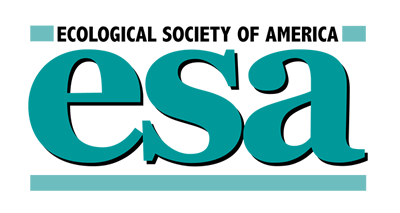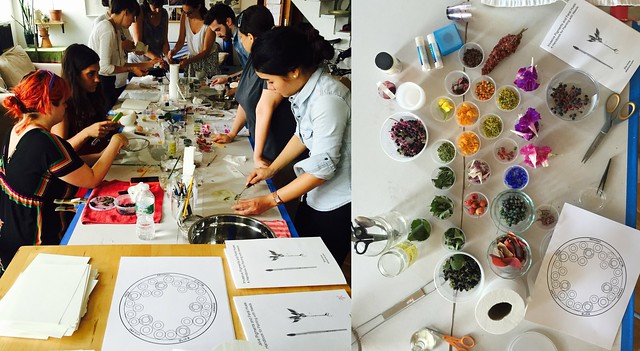2017 Portland Annual Meeting
Over 4,500 ecologists descended on Portland, Oregon for the ESA Annual Meeting. Research presented synced with the meeting’s theme of “Linking biodiversity, material cycling, and ecosystem services in a changing world.” Sessions focused on how biodiversity is the foundation for many ecosystem services, how ecosystem functioning can translate into ecosystem services, and the role different dimensions of biodiversity play in developing such understanding.
Giving back, ESA donated over $20,000 to the Sustainable Northwest Forest Program to off-set the meetings environmental footprint. The organization’s mission brings people, ideas, and innovation together so nature, local economies, and rural communities can thrive. They are strategically restoring over 250,000 forested acres across Oregon and Washington affected by fire suppression and seek to make Oregon’s forests and rangelands resilient to the effects of climate change.
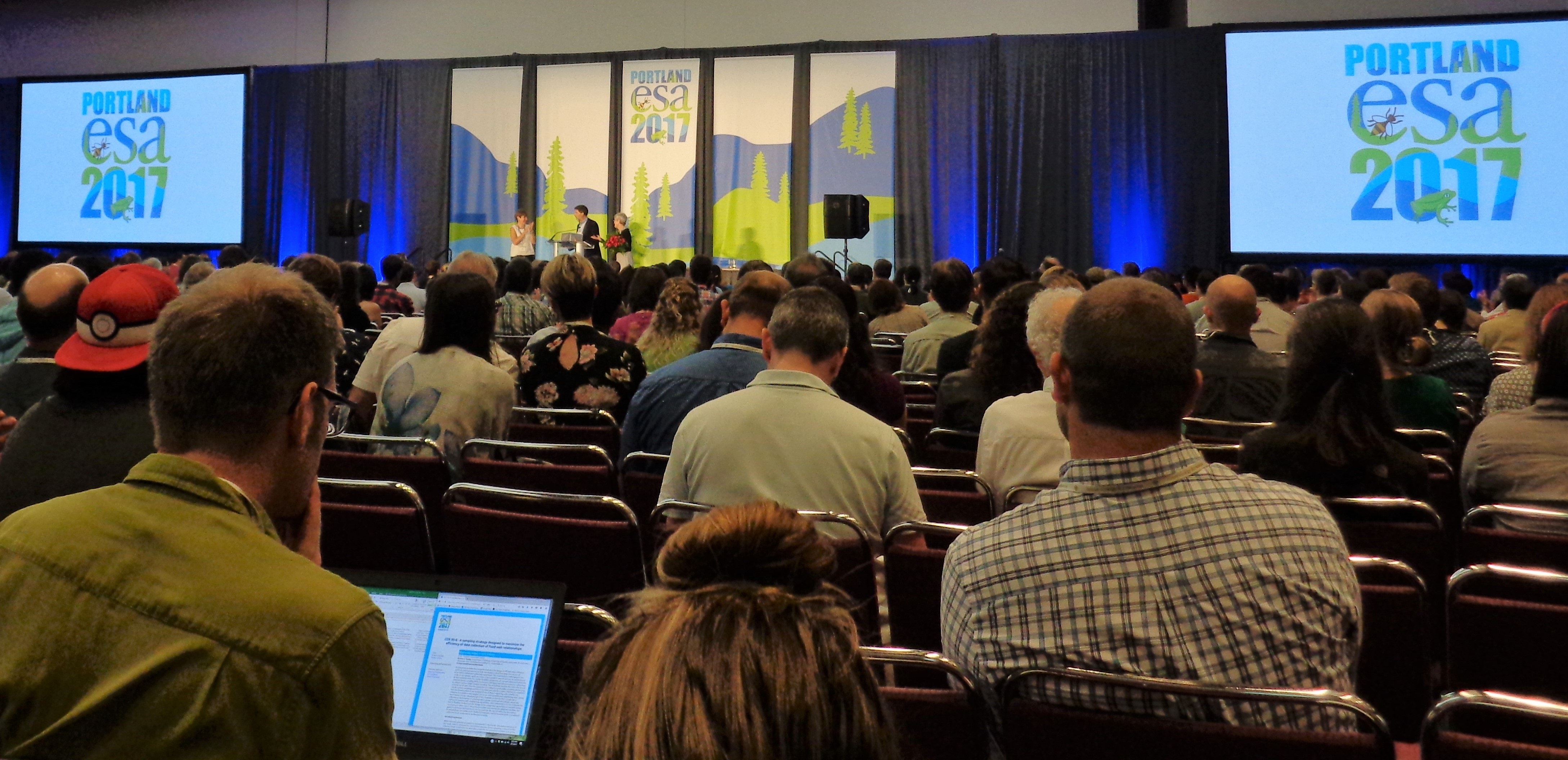
During the Scientific Plenary President David Lodge recognized and thanked Executive Director Katherine McCarter for her twenty years of service to ESA. Lodge noted her excellence of service over the years while significantly expanding ESA’s impact in many arenas.
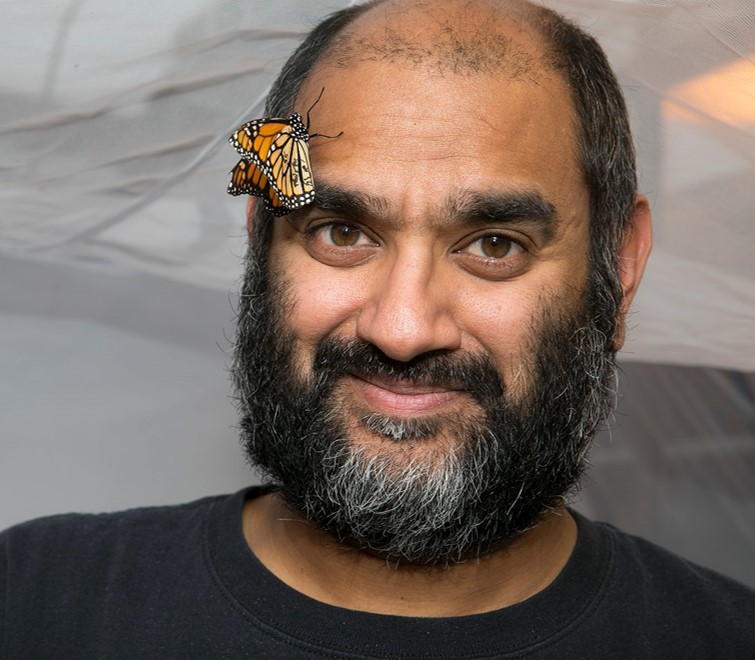
Anurag A. Agrawal, Cornell University and Robert H. MacArthur Award Winner, presented the Scientific Plenary by paying homage to MacArthur’s legacy in a talk entitled, “Trade-offs in Evolutionary Ecology.”
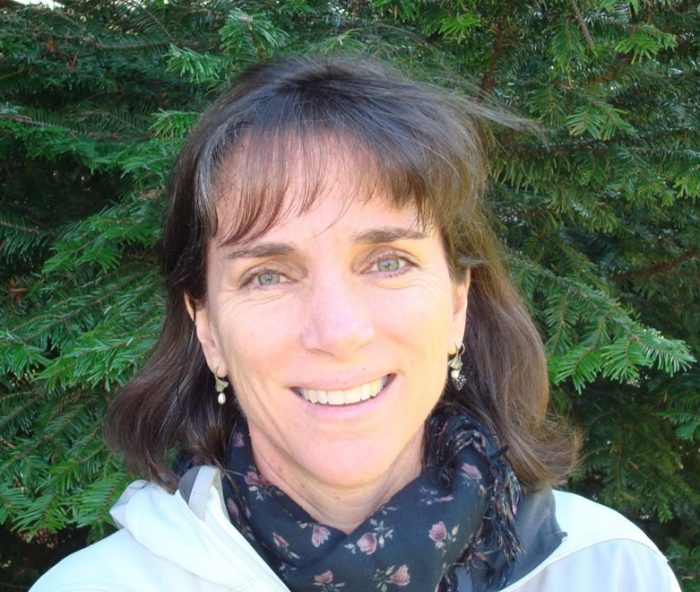
Mary Ruckelshaus, managing director, The Natural Capital Project kicked-off the meeting with an Opening Plenary address entitled, “Science and the Dialectic of People and Nature.”
Special Policy Forum and Regional Policy Award
Regional Policy Award
ESA's Regional Policy Award recognizes an elected or appointed local policymaker with an outstanding record of informing policy decisions with ecological science.
The 2017 Regional Policy Award was presented to U.S. Congresswoman Suzanne Bonamici, representative of Oregon’s 1st congressional district. ESA President David Lodge presented Congresswoman Bonamici with the Regional Policy Award during the Special Policy Forum at the Annual Meeting.
She is a member of the House Committee on Science, Space, and Technology and the top Democratic member on the Subcommittee on Environment and is dedicated to ensuring that policy decisions are informed by science. The Congresswoman works to address the causes and risks of global climate change and is a member of the Climate Solutions Caucus and co-chair of the Congressional STEAM Caucus, which integrates the arts and design with Science, Technology, Engineering, and Math education.
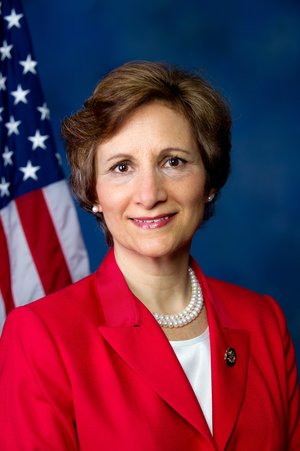
Congresswoman Suzanne Bonamici (D-OR)
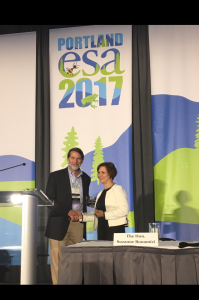
Congresswoman Bonamici receiving the Regional Policy Award from ESA President David Lodge.
Special Policy Forum
This year’s annual meeting featured a new Special Policy Forum to examine the current national political landscape from the ecological science perspective. The Forum featured a panel of key scientific and policy figures, each with a unique perspective on the current political scene: Congresswoman Suzanne Bonamici; Frank Davis, ESA public affairs vice-president; David Lodge, ESA president for 2016-2017; Richard Pouyat, ESA president for 2017-2018; and the Honorable Dr. Jane Lubchenco, university distinguished professor at Oregon State University and ESA past president. The panel discussions provided insight into the national political environment and explored ways for ecologists to constructively engage with federal, state, and local policymakers.
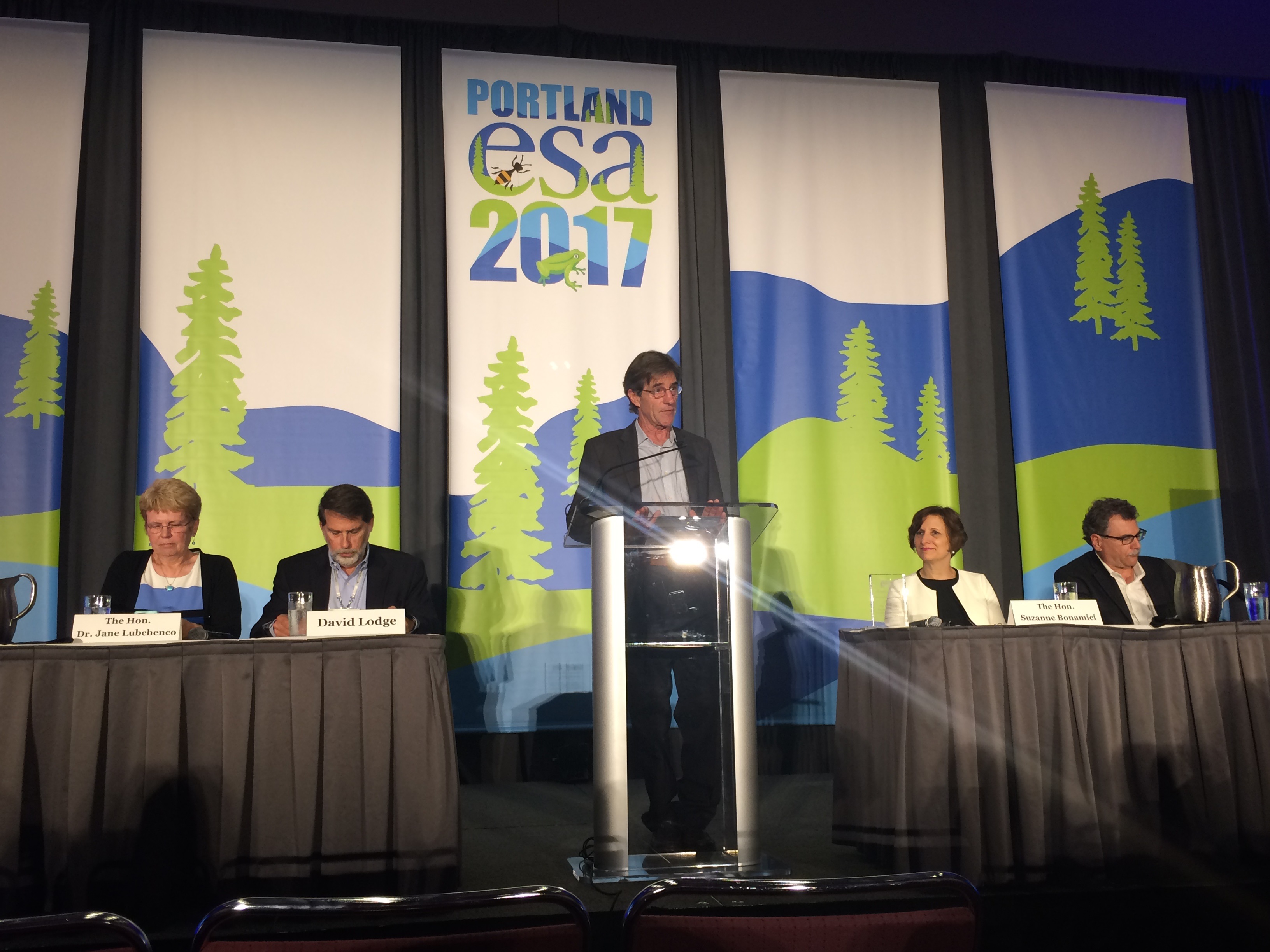
Pictured left to right: Jane Lubchenco, David Lodge, Frank Davis, Congresswoman Suzanne Bonamici, and Richard Pouyat.
Awards
ESA awards recognize outstanding contributions to ecology in new discoveries, teaching, sustainability, diversity, and lifelong commitment to the profession. The 2017 awards were presented at the Scientific Plenary during the Society’s Annual Meeting. Learn more about ESA awards on our website.
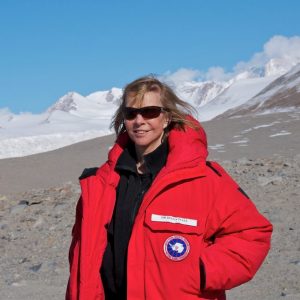
Eminent Ecologist Award: Diana Harrison Wall
The Eminent Ecologist Award honors a senior ecologist for an outstanding body of ecological work or sustained ecological contributions of extraordinary merit.
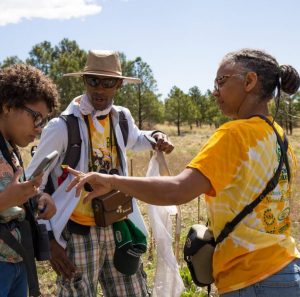
Commitment to Human Diversity in Ecology Award: Gillian Bowser
The ESA Commitment to Human Diversity in Ecology Award recognizes long-standing contributions of an individual towards increasing the diversity of future ecologists through mentoring, teaching, or outreach.
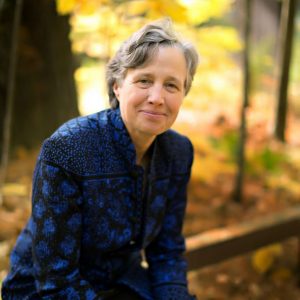
Eugene P. Odum Award for Excellence in Ecology Education: Kathleen Weathers
Odum Award recipients demonstrate their ability to relate basic ecological principles to human affairs through teaching, outreach, and mentoring activities.
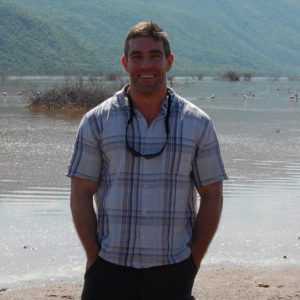
Innovation in Sustainability Science Award: Ian Donohugh (pictured) and colleagues
The 2017 Innovation in Sustainability Science Award honors Ian Donohue, Helmut Hillebrand, José M. Montoya, Owen L. Petchey, Stuart L. Pimm, Mike S. Fowler, Kevin Healy, Andrew L. Jackson, Miguel Lurgi, Deirdre McClean, Nessa E. O’Connor, Eoin J. O’Gorman, and Qiang Yang for their review and synthesis of “Navigating the complexity of ecological stability,” published in Ecology Letters in July, 2016.

Murray F. Buell Award: Michael McTavish
The Murray F. Buell Award for Excellence in Ecology is given to a student for the outstanding oral paper presented at the ESA Annual Meeting.
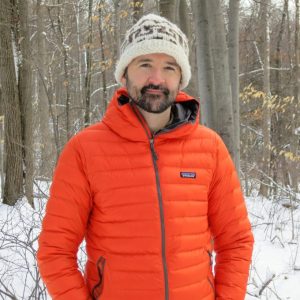
W.S. Cooper Award: Andrew Trant (pictured) and colleagues
The Cooper Award honors the authors of an outstanding publication in the field of geobotany, physiographic ecology, plant succession or the distribution of plants along environmental gradients. This years winners were Andrew Trant and colleagues: Wiebe Nijland, Kira M. Hoffman, Darcy L. Mathews, Duncan McLaren, Trisalyn A. Nelson, and Brian M. Starzomski.
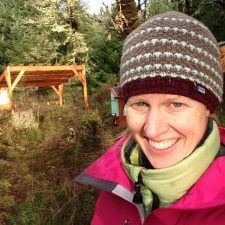
George Mercer Award: Jennifer Williams (pictured) and colleagues
The George Mercer Award recognizes an outstanding and recently published ecological research paper by young scientists. This year’s recipients were Jennifer Williams and colleagues: Bruce Kendall, and Jonathan Levine

Distinguished Service Citation: Debra Peters
The Distinguished Service Citation recognizes long and distinguished volunteer service to ESA, the scientific community, and the larger purpose of ecology in the public welfare.
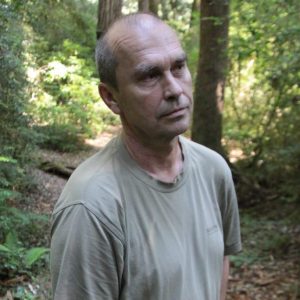
Robert H. Whittaker Distinguished Ecologist Award: Petr Pyšek
The Whittaker Award recognizes an ecologist with an earned doctorate and an outstanding record of contributions in ecology who is not a U.S. citizen and who resides outside the United States.
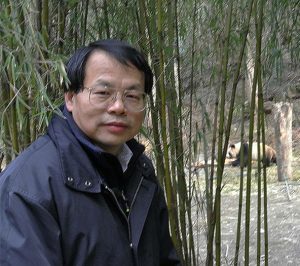
Sustainability Science Award: Jianguo Liu (pictured) and colleagues
The Sustainability Science Award recognizes the authors of the scholarly work that makes the greatest contribution to the emerging science of ecosystem and regional sustainability through the integration of ecological and social sciences. This year’s recipients were Jianguo Liu and colleagues: Harold Mooney, Vanessa Hull, Steven J. Davis, Joanne Gaskell, Thomas Hertel, Jane Lubchenco, Karen C. Seto, Peter Gleick, Claire Kremen, and Shuxin Li.
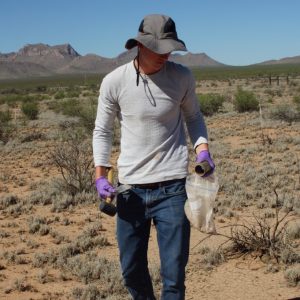
Forrest Shreve Student Research Fund: Frederick Hansen
Awards from the Forrest Shreve Student Research Fund provide $1,000-2,000 to support ecological research by graduate or undergraduate student members of ESA in the hot deserts of North America (Sonora, Mohave, Chihuahua, and Vizcaino).
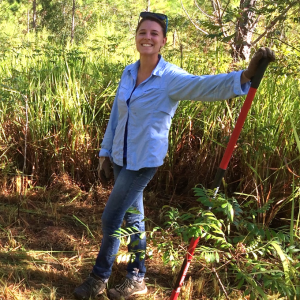
E. Lucy Braun Student Award: Julienne NeSmith
The E. Lucy Braun Award for Excellence in Ecology is given to a student for an outstanding poster presentation at the ESA Annual Meeting. Papers and posters are judged on the significance of ideas, creativity, quality of methodology, validity of conclusions drawn from results, and clarity of presentation.
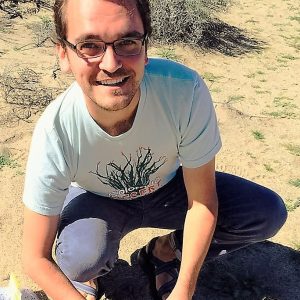
Forrest Shreve Student Research Fund: Daniel Winkler
Awards from the Forrest Shreve Student Research Fund provide $1,000-2,000 to support ecological research by graduate or undergraduate student members of ESA in the hot deserts of North America (Sonora, Mohave, Chihuahua, and Vizcaino).
The Annual Meeting in the News
The newsroom at the Annual Meeting provides reporters with press credentials and space to work, file stories, and conduct interviews. ESA hosted over 20 reporters in Portland, as well as a communications student filming a documentary and a producer for Oregon Public Broadcasting collecting interviews for a future project. Perhaps in keeping with industry trends, few staff reporters have attended in recent years, replaced by a dedicated corp of freelance science writers. Physical copies of topical program tips proved popular among onsite reporters. Despite increased outreach, we observed a drop in participation from public information officers, both onsite and remotely. Press officers from the Forest Service’s Northwest Research Station, University of Georgia’s Odum School, and the LTER network had a strong presence at the meeting, however. Media attendance at field trips expanded. Freelancers mentioned greater interest in shopping feature stories than brief news stories filed on site at the meeting, and expressed high satisfaction with story leads acquired at the meeting.
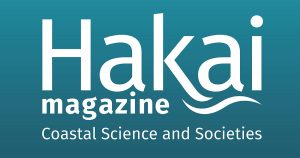 “In a Changing Climate, Conservative Elephant Seals Suffer” by Rebecca Heisman Hakai Magazine 27 Sep. 2017
“In a Changing Climate, Conservative Elephant Seals Suffer” by Rebecca Heisman Hakai Magazine 27 Sep. 2017
 “How a 3-Ton Mess of Dead Pigs Transformed This Landscape” by Christie Wilcox National Geographic 22 Sep. 2017
“How a 3-Ton Mess of Dead Pigs Transformed This Landscape” by Christie Wilcox National Geographic 22 Sep. 2017
 “Springtime Now Arrives Earlier for Birds” by Julia Rosen Scientific American 20 Sep. 2017
“Springtime Now Arrives Earlier for Birds” by Julia Rosen Scientific American 20 Sep. 2017
 “There are hardly any old fish left in the ocean – and that’s bad” by Michael Tennesen New Scientist 15 Sep. 2017
“There are hardly any old fish left in the ocean – and that’s bad” by Michael Tennesen New Scientist 15 Sep. 2017
![]() “Can Snowshoe Hares Adapt to Climate Change?” by Rebecca Heisman
“Can Snowshoe Hares Adapt to Climate Change?” by Rebecca Heisman
Sierra Magazine 31 Aug. 2017
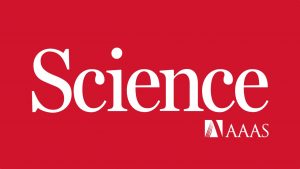 “Roadside trees trap asthma-inducing pollutants” by Barbra Rodriguez Science 23 Aug. 2017
“Roadside trees trap asthma-inducing pollutants” by Barbra Rodriguez Science 23 Aug. 2017
 “Will only the flexible survive? Researchers are identifying the West’s wildlife that can best cope with climate change.” By Maya Kapoor High Country News 22 Aug. 2017
“Will only the flexible survive? Researchers are identifying the West’s wildlife that can best cope with climate change.” By Maya Kapoor High Country News 22 Aug. 2017
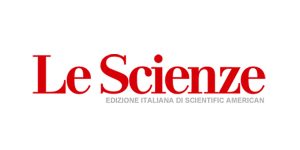 “El Niño enhances carbon dioxide emissions” by Gabriel Popkin Le Scienze 16 Aug. 2017 (Popkin’s 10 Aug Nature story in translation)
“El Niño enhances carbon dioxide emissions” by Gabriel Popkin Le Scienze 16 Aug. 2017 (Popkin’s 10 Aug Nature story in translation)
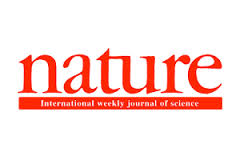 “Why 14 ecology labs teamed up to watch grass grow” by Ewen Callaway Nature 15 Aug. 2017 “Massive El Niño sent greenhouse-gas emissions soaring” by Gabriel Popkin Nature 10 Aug 2017
“Why 14 ecology labs teamed up to watch grass grow” by Ewen Callaway Nature 15 Aug. 2017 “Massive El Niño sent greenhouse-gas emissions soaring” by Gabriel Popkin Nature 10 Aug 2017
 “The American pika: A case study in wildlife acclimating to climate change” by Mike Gaworecki Mongabay 10 Aug. 2017
“The American pika: A case study in wildlife acclimating to climate change” by Mike Gaworecki Mongabay 10 Aug. 2017
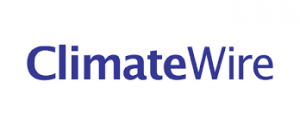 “Fuzzy Pikas Adapt to Climate Change at Different Rates” by Adam Aton ClimateWire (republished in Scientific American) 3 Aug. 2017
“Fuzzy Pikas Adapt to Climate Change at Different Rates” by Adam Aton ClimateWire (republished in Scientific American) 3 Aug. 2017
#ESA2017 Social
The Annual Meeting is the liveliest time of year for engagement with ESA’s social media. Twitter remains a favorite platform for our community, with meeting attendees sharing in-the-moment insights from research presentations, workshops, and events. Social media also engages ecologists not in attendance, as absent friends check in and follow the conversation from afar.
Scientists need to become bilingual, says @JaneLubchenco. Speak the science, but also be able to communicate it. #ESA2017
— Ecological Society (@ESA_org) August 8, 2017
Hey #ESA2017! Come check out our symposium Wed. AM. Animating the Carbon Cycle, organized by Os & Chris Wilmers, moderated by @BuchkowskiR pic.twitter.com/3QXZZXuPuZ
— Schmitz Lab (@SchmitzLab) August 7, 2017
Love it! The "landscape mullet hypothesis" business in the front and party in the back. @UrbanMGrove #ESA2017 @BESlter
— US LTER (@USLTER) August 10, 2017
Thanks attendees for taking our survey. Here are post-session results from #ESA2017 #IGN15-what is the single greatest threat to drylands? pic.twitter.com/Q0vnP5XdkV
— Scott Ferrenberg (@ScottFerrenberg) August 10, 2017
Adorable alpine animal acclimates behavior to a changing climate #ESA2017 @ESAFrontiers @USGS_MT https://t.co/hNSjW2R8za pic.twitter.com/qo4AsOiwVC
— Ecological Society (@ESA_org) August 1, 2017
embroidery by @rob_c_ornelas https://t.co/VCePVKHjdk #ESA2017 #STEAM pic.twitter.com/UKAScN04ID
— Ecological Society (@ESA_org) August 8, 2017
Getting ready for our IGNITE talks on how we help farmers + ranchers cope w clim change #ESA2017 pic.twitter.com/pDtjT2kz3i
— The Science Network (@SciNetUCS) August 10, 2017
Join us in the Oregon Ballroom for a policy forum with @RepBonamici #ESA2017 pic.twitter.com/LEmNQZ0DqI
— Ecological Society (@ESA_org) August 8, 2017
4000 Annual Meeting pre-registration packets prepped for Portland. See you soon friends! pic.twitter.com/h3DRgHNO1w
— Ecological Society (@ESA_org) August 1, 2017
#ESASciComm booth looking good thanks to all the #sketchyourscience contributions. #ESA2017 #SciArt #SciComm @commnatural @impactmedialab pic.twitter.com/LHbYSyxJhW
— Annaliese Hettinger (@A_Hettinger) August 10, 2017
strategy for rest of #ESA2017 is to go to talks a little outside my dissertation wheelhouse that get me jazzed about ecology! 🤓
— Alex Webster (@alxweb) August 10, 2017
Trickle-down #EcosystemServices.
Ecological Science for Policy and Management of Ecosystem Services. #ESA2017https://t.co/xcX3Kuwbd4 pic.twitter.com/BmNGxqSzbv— Ecological Society (@ESA_org) July 21, 2017
Re-discovering WS Cooper's Glacier Bay AK: 100 yrs of succession. Brian Buma @uasoutheast #ESA2017 8:40 B112 https://t.co/h65UptRHjh pic.twitter.com/WMWLjl4cez
— Ecological Society (@ESA_org) August 11, 2017
#ESA2017 @NutNetGlobal Talk: @donohueian Disturbances & ecological stability at the global scale Fri E145 COS181 https://t.co/Hr75oIpxNA
— Nutrient Network (@NutNetGlobal) August 10, 2017
The Best Poster Ever Award goes to @Julian_Resasco. Wow! #ESA2017 pic.twitter.com/UL6ML1HoSn
— Jacquelyn Gill (@JacquelynGill) August 10, 2017
Learn how sustainable beer is brewed! join @OregonTilth tonite @HopworksBeer #ESA2017 #ScienceCafe & brewery tour https://t.co/BZuIB2Jne5 pic.twitter.com/Qf6cyZ8Ypw
— Ecological Society (@ESA_org) August 9, 2017
David Lodge: invite those whose lives are affected by policy decisions into the research process #ESA2017
— Ecological Society (@ESA_org) August 8, 2017
Regulations on land use that have been put in place to protect water quality, human lives, and property, may also…
Posted by Ecological Society of America on Monday, August 7, 2017
Safe Space in the Salmon River A Coho male in his mating colors heads up the Salmon River in western Oregon during…
Posted by Ecological Society of America on Friday, July 21, 2017
In the spirit of #PollinatorsWeek, we want to share all of the pollinator related presentations that will be at our…
Posted by Ecological Society of America on Tuesday, June 20, 2017
FREDERICK HANSEN RECEIVES THE FORREST SHREVE STUDENT RESEARCH FUND TO STUDY MICROBIAL COMMUNITIES IN THE CHIHUAUAN…
Posted by Ecological Society of America on Monday, July 3, 2017
The Ecological Society of America’s 2017 Eminent Ecologist, Colorado State University researcher Diana Wall, takes a…
Posted by Ecological Society of America on Thursday, March 2, 2017
As climate change brings new pressures to bear on wildlife, species must “move, adapt, acclimate, or die.” Erik Beever…
Posted by Ecological Society of America on Tuesday, August 1, 2017
Getting to the roots of Sahara mustard invasion in the American SouthwestCongrats to University of California, Irvine…
Posted by Ecological Society of America on Monday, July 17, 2017
Congratulations to University of Waterloo grad student Michael McTavish!winner of the Murrey Buell #Award for his…
Posted by Ecological Society of America on Tuesday, May 23, 2017
Check out these activities at #ESA2017 brought to you the Science Communication Section
Posted by Ecological Society of America on Thursday, July 27, 2017
Take a tour of Portland Oregon's #EcoRoofs or learn to build your own App in one of the many workshops and field trips…
Posted by Ecological Society of America on Tuesday, July 4, 2017
Congratulations to University of Florida grad student Julienne NeSmith! winner of the Lucy Braun #Award for her poster…
Posted by Ecological Society of America on Tuesday, May 23, 2017
Ecologists and artists will explore the intersection of their craft in two back-to-back Ignite-style sessions on…
Posted by Ecological Society of America on Tuesday, July 25, 2017
Art Inspiring Ecological Science, Inspiring Art
Participants in two sessions on the intersection of art and science shared samples of their craft in an accompanying Flickr portfolio, curated by ESA Public Affairs.
Ecologists and artists explored the intersection of their craft in two back-to-back Ignite-style sessions on Tuesday, August 8, at the Ecological Society of America’s 2017 Annual Meeting in Portland, Oregon. “When a scientist sees their work through an artist’s eyes, they learn something,” said ecologist Kim Landsbergen, an associate professor at Antioch College and organizer of “IGN 5 – Art and Science Collaboration: Disciplinary Diversity as a Means of Exploring Ecological Systems and Value Structures.” “In this session, we focus on collaborative projects that fuse contemporary art and ecological science to make new work that’s not possible within each discipline alone.” Aaron Ellison, organizer of “IGN 7 – Ecological Art-Science Collaborations” and a senior research fellow in Ecology at the Harvard Forest, expressed similar goals. “We hope to use this session to turn the one-way street that art serves only to communicate science, into a two-way interaction where art and science inform, improve, and enhance one another. Scientists can learn as much from art, and artists, as artists can learn from science, and scientists,” said Ellison. Press Release
Meetings & Exhibit Staff
Director of Publishing and Member Services: Steve Sayre
Senior Convention & Meetings Manager: Christi R. Nam, CMP
Exhibits & Meetings Manager: Faye Pastor, CMP
2017 Program Planning Committee
Chris Swan: ESA 2017 Program Chair
Marion Dresner: 2017 Local Host Chair
Kiyoko Miyanish: Co-Chair and Future Meetings Chair
Lee Frelich: Co-Chair Future Meetings Committee
Timothy D. Schowalter: 2018 Program Chair
Caz Taylor: 2018 Local Host Chair
Ryan McEwan: 2019 Program Chair
Sarah Emery: 2019 Local Host Chair
Brian Benscoter: 2016 Local Host Chair
Joshua Scholl: Student Section Chair
Jayne Belnap: Vice President for Science (ex-officio)
Jessica Gurevitch: Secretary (ex-officio)
